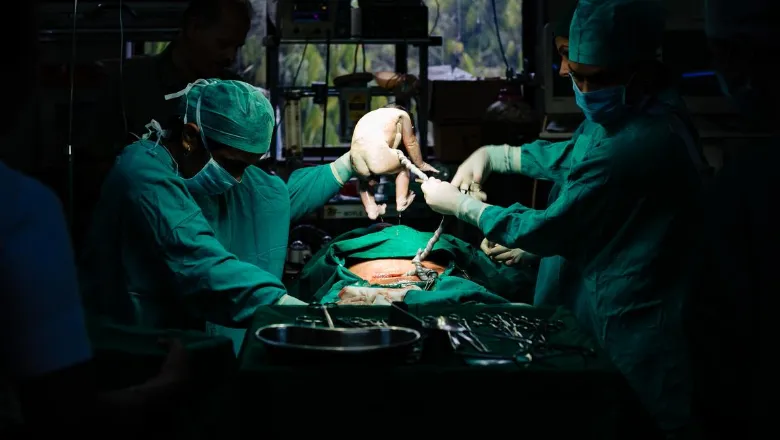This is a serious problem that few doctors are aware of. Recurrent preterm birth is more common and occurs early in women with prior emergency Caesareans but is difficult to treat. The recent escalation of Caesarean sections should be looked at critically, as some harm is evident.
Lead author Andrew Shennan, Professor of Obstetrics at the School of Life Course Sciences
12 August 2020
Emergency Caesarean sections can cause recurring early labour, study finds
Women who have had emergency Caesarean section and a subsequent preterm birth or miscarriage are more likely to go into early labour during their third pregnancy, a study has found.

The research showed that treatments such as a cervical stitch do not reduce the risk.
The study published recently in Acta Obstetricia et Gynecologica Scandinavica, by researchers from King’s and supported by the National Institute for Health and Research Guy’s and St Thomas’ Biomedical Research Centre, investigated the risk of subsequent preterm births, in which delivery occurs before 37 weeks, associated with emergency Caesarean section.
Preterm birth has long term health consequences and puts at risk an infants’ survival and quality of life. It is projected to cost health services in England and Wales £939 million per year.
It has previously been established that women who have had an emergency Caesarean section are at increased risk of late miscarriage or preterm labour. This risk is greater the further on in labour the Caesarean is done, and there is a six-fold increased risk if performed in late labour when the neck of the womb is fully dilated.
In 2017-18, 28% of births in the UK were by Caesarean section, and more than half (16.2%) were emergency. A cervical stitch following Caesarean section can be done to keep the neck of the womb closed during subsequent pregnancies, which means the cervix is less likely to open, thereby reducing the chances of going into early labour.
The study examined the outcomes of 209 women who had a previous emergency Caesarean and a subsequent preterm birth, of which 72 women required a cerclage (cervical stitch) and 33 (46%) delivered before 30 weeks gestation.
When researchers compared these results to a control group who received cerclage and delivered after 24 weeks, those who had had a Caesarean were 10 times more likely to deliver before 30 weeks (3% vs 30%). The results were similar regardless if the Caesarean was done in early or late labour and even when those women who did not receive cerclage were included in the analysis, 50% (53/107) delivered early before 37 weeks gestation.
The authors suggest higher incisions in the uterus at Caesarean to help to prevent this problem, and Caesarean sections may not always be safer then assisted vaginal deliveries.

